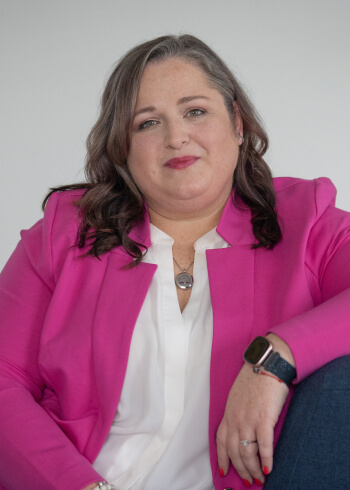Protecting your home from Medicaid in Kentucky can be a complex and sensitive issue. Very often our home is our greatest asset. As a result, the thought of losing it can provoke anxiety when trying to plan for Medicaid eligibility.
Medicaid is a federal and state program that provides healthcare coverage to eligible low-income adults, children, pregnant women, elderly adults, and people with disabilities. Medicaid is administered by the states, according to federal requirements. However, to be eligible for Medicaid, applicants must meet certain income and asset limits, which can be quite restrictive. One common concern for individuals seeking Medicaid is that their home may be considered a countable asset, potentially leading to its sale to cover healthcare expenses. However, there are legal strategies that can help you protect your home. Medicaid planning involves making financial arrangements to meet these requirements while preserving some of your assets for yourself and your family.
If you have significant assets, including a home, and you are concerned about protecting it while qualifying for Medicaid, it is important to consult with an attorney who specializes in elder law or Medicaid planning. Berkley Oliver has experienced attorneys who can help you with Medicaid planning and to make sure that your home is protected in the process.
Strategies to Protect Your Home While Engaged in Medicaid Planning
Here are some general legal strategies that people sometimes use to protect their homes while they are trying to qualify for Medicaid:
Understand Medicaid Eligibility Rules
In Kentucky, seniors must be financially and medically eligible for long-term care Medicaid. They must have limited income, limited assets, and a medical need for care. A single individual applying for Nursing Home Medicaid in 2023 in Kentucky must meet the following criteria: 1) Have income under $2,742 /month; 2) Have assets under $2,000; 3) Require the level of care provided in a nursing home facility. For a married applicant with just one spouse applying, the 2023 asset limit is $2,000 for the applicant spouse and $148,620 of assets for the non-applicant spouse, and the income limit is $2,742 / month for the applicant. The income of the non-applicant spouse is not counted.
Homestead Exemption
Kentucky offers a homestead exemption for Medicaid eligibility purposes. This means that the primary residence is typically not counted as an asset if the Medicaid applicant or their spouse lives there. However, if the home is not the primary residence, it may be considered an available asset. For home exemption, the Medicaid applicant must live in their home or have Intent to Return, and in 2023, their home equity interest must not be greater than $688,000. Home equity is the value of the home after subtracting any outstanding debt against it. Equity interest is the amount of home equity owned by the applicant. If a spouse lives in the home, it is exempt regardless of where the applicant lives or their home equity interest.
While one’s home is generally exempt from Medicaid’s asset limit, it is not exempt in Kentucky from Medicaid’s Estate Recovery Program. Following a long-term care Medicaid beneficiary’s death, Kentucky’s Medicaid agency attempts reimbursement of care costs through whatever estate of the deceased still remains. This is often the home. Without proper planning strategies in place, the home will be used to reimburse Medicaid for providing care rather than going to the family as an inheritance.
Transfer the Home
Some individuals transfer ownership of their home to a spouse or other family members before applying for Medicaid. This should be done with caution and with the advice of an attorney because there will be a look-back period during which transfers are scrutinized, and penalties can are imposed.
Gifting
You may choose to give away some of your assets to family members or create trusts to protect them from Medicaid’s asset limits. However, there are strict rules about when and how you can do this, so it is essential to consult with a Medicaid planning expert to avoid penalties.
Trusts
Some individuals use irrevocable trusts, such as Medicaid asset protection trusts (MAPT), to protect their homes and other assets. Transferring your home into an irrevocable trust can remove it from your countable assets while allowing you to maintain some control over it.
Look-Back Period
Kentucky has a 60-month (5-year) Medicaid Look-Back Period that immediately precedes the date of one’s Nursing Home Medicaid or Medicaid Waiver application. This prevents individuals from giving away assets to qualify for Medicaid. Persons who have assets over Medicaid’s asset limit can “spend down” assets and become asset-eligible. This can be done by spending excess assets on non-countable ones, such as home modifications (i.e., the addition of wheelchair ramps, stair lifts, and walk-in showers), prepaying funeral and burial expenses, and paying off debt. Medicaid planners help clients navigate this period and make appropriate financial decisions.
Legal Assistance
Medicaid planning typically requires the expertise of an attorney with knowledge of Kentucky’s Medicaid rules and regulations. Attorneys can help draft the necessary legal documents, such as the Medicaid Asset Protection Trust, and ensure compliance with state and federal laws.
Personalized Planning
Medicaid planning is highly individualized and depends on a person’s unique financial situation and healthcare needs. What works for one individual or family may not work for another. The process should therefore be tailored to each person’s circumstances.
Changes in Medicaid Rules
It is essential to stay informed about changes in Medicaid rules and regulations, as they can impact eligibility and planning strategies.
Plan Ahead
Medicaid planning is most effective when done well in advance of needing long-term care. Planning early allows you to implement strategies that protect your assets while ensuring you meet the eligibility requirements when the time comes.
The Takeaway
Medicaid planning to protect one’s home can be complex, and the rules may change over time. It is highly recommended that you consult with a knowledgeable attorney experienced in Medicaid planning. Berkley Oliver can help to ensure that you make the right decisions within the legal framework.


